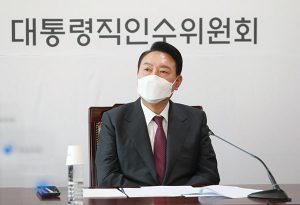Bloomberg
South Korea’s President-elect Yoon Suk Yeol plans to embrace nuclear energy in a bid to accelerate the nation’s goal to zero out emissions.
An extensive revision to the energy mix, particularly atomic power, is “inevitable†in order for South Korea to reach its climate targets, the presidential transition committee said. Nuclear energy will be added to the taxonomy to accelerate green goals by August at the latest, it said.
Yoon has been a supporter of nuclear power since the beginning of his presidential campaign, claiming it should be included in the country’s net-zero path along with renewable sources and has pledged to reverse outgoing President Moon Jae-in’s plans to gradually ditch reactors. The nation is one of several reconsidering atomic power, which had been left for dead on safety concerns and massive cost overruns, in the face of soaring fossil fuel prices and emissions targets.
“The climate-change task force has concluded that the Yoon administration will need to re-establish honest, realistic and responsible decarbonisation plans,†Won Hee-ryong, the committee’s planning chief, said. “The country’s greenhouse gas emissions have rebounded, indicating the Moon administration’s net-zero train has already derailed from its track and breached its climate promise.â€
The committee said that if the country were to maintain Moon’s nuclear phaseout plans and current decarbonisation policies, the cost of electricity could jump fivefold from current levels by 2050. That growing cost would likely hurt South Korea’s entire economy, the group said.
The government will incorporate advanced technologies including small modular reactors in its net-zero roadmap, and strengthen climate ties with major economies including the US, according to the committee.
South Korea has vowed to reach climate neutrality by 2050 under the Green New Deal, along with its bolstered plans to cut emissions by 40% from 2018 levels by 2030.
Still, the Asian nation has been struggling to boost the share of renewable sources, which accounted for less than 8% of total electricity generation in 2020.
 The Gulf Time Newspaper One of the finest business newspapers in the UAE brought to you by our professional writers and editors.
The Gulf Time Newspaper One of the finest business newspapers in the UAE brought to you by our professional writers and editors.
